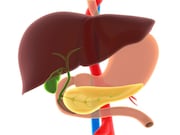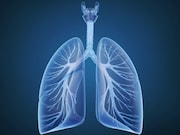FDA Approves First Gene Therapy for Spinal Muscular Atrophy
Patients treated with Zolgensma have shown improvement in reaching developmental motor milestones
First PI3K Inhibitor Approved for Metastatic, Advanced Breast Cancer
Piqray approved for HR-positive, HER2-negative, PIK3CA-mutated, metastatic or advanced breast cancer
Antiplatelets Do Not Up Recurrence in Intracerebral Hemorrhage
In population with cerebral microbleeds, no increased risk seen for those starting antiplatelet therapy
Suboptimal BP, Fasting Glucose Tied to Atrioventricular Block
Two modifiable variables potentially explain more than half of all atrioventricular blocks
Cancer Consultation Low in Noncurable Pancreatic Adenocarcinoma
Likelihood of cancer-directed therapy higher for first consult with medical, radiation oncology versus surgery
Guidance Updated for Sedation in Pediatric Dental Patients
Importance of having two individuals present during deep sedation and/or general anesthesia emphasized
AI Model Can Improve Accuracy of Lung Cancer Screening
In some situations, model outperformed radiologists with reductions in false positives, negatives
Regulation of Intestinal Microbiota Beneficial for Anxiety
Six of seven studies using nonprobiotics as interventions were effective
Higher BMI in Male Teens Tied to Cardiomyopathy in Adulthood
Risk increased even at BMI considered normal; more than eightfold greater risk seen for BMI ≥35 kg/m²
Poverty Ups Risk for Amputation After Knee Replacement
No racial or sex disparities seen for risk for amputation after periprosthetic joint infections














